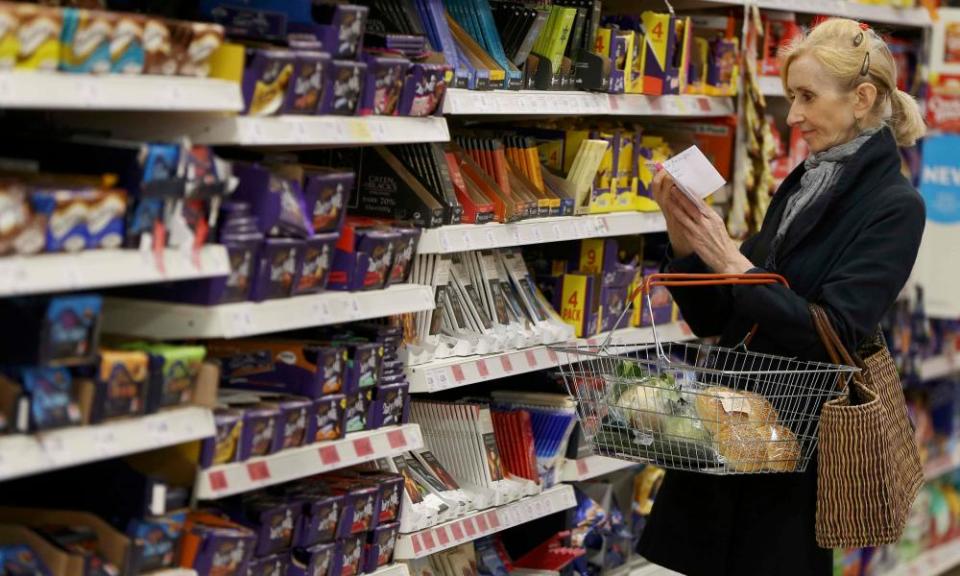British consumers' confidence slumps as inflation grows

Rising inflation is taking its toll on British households, knocking consumer confidence to its lowest level since the aftermath of last summer’s Brexit vote.
Pollsters YouGov said worries about job security and living costs pushed its monthly measure of consumer mood down a further 1.5 points to 108 in April, the weakest reading since last July.
The score above 100 still shows that more people are confident than not, bringing some solace for Theresa May’s government as it banks on a solid victory in the snap election on 8 June.
But the consumer confidence measure is well below the levels seen before June’s vote to leave the EU. The poll also underscored the squeeze on living standards as inflation starts to rise faster than pay. It found Britons were at their gloomiest in more than three years about their own financial outlook.
“Many analysts have said for a while that inflation would bite and these figures show that it has started to – and is likely to get worse over the coming year,” said Stephen Harmston, head of YouGov reports.
The downbeat tone of the poll chimes with signs the economy has lost momentum in recent months as the post-referendum resilience in consumer spending wanes. Official figures on Friday morning are expected to show UK economic growth slowed markedly in the first quarter of this year.
Much of the pressure on households stems from higher inflation, which has picked up to its highest level in more than three years on the back of higher oil prices and because of the pound’s weakness since the Brexit vote. A weaker currency makes imports to the UK such as food and fuel more expensive.
Wage growth has fallen behind inflation, leaving people worse off in real terms and denting consumer spending, a key driver of the UK economy.
YouGov bases its consumer confidence survey on 6,000 interviews a month, asking about household finances, property prices, job security and business activity, over the past 30 days and looking ahead to the next 12 months. Six of its eight measures fell in April.
There was a small increase in homeowners’ expectations for property prices over the coming year and people were more upbeat about the level of business activity in their workplace over the past month.
However, confidence about job security over the last month dropped to the lowest level since April 2013.
Nina Skero at the Centre for Economics and Business Research, which co-compiles the consumer confidence report, said the gloom around personal finances did not bode well for the UK economy.
“Consumer confidence has been on the cusp of a decline for a while and it has now tipped over and fallen,” said Skero, head of macroeconomics at the consultancy.
“Particularly worrying is the fall in both the forward and backward-looking household finances as it is clear that people are starting to feel the pinch and expect things to get worse. If they start to really rein in spending, the knock-on effect on the economy could be notable.”
A separate measure of consumer confidence from the market research firm GfK also slipped in April, dropping one point to -7, the lowest since December. That report suggested people were more gloomy about their own finances and the UK economy, but more confident that now was a good time to make big purchases such as furniture.
GfK spokesman Joe Staton said that while there was a dip compared with March, confidence was still “surprisingly stable” and had not suffered the sharp drop some commentators had suggested could follow the triggering of article 50.
“Consumers continue to remain positive about the state of their personal finances and even report that now is a good time to buy,” Staton said. “But is this too good to be true? Is this simply the calm before the storm? Is pre-Brexit economic turbulence yet to really batter households? That threat cannot be ruled out.”

 Yahoo Finance
Yahoo Finance 